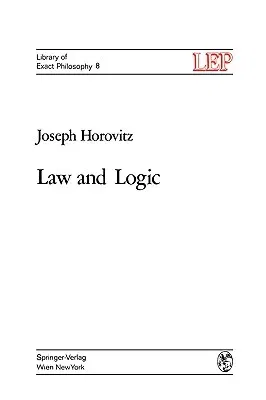This book has two related aims: to investigate the frequently voiced
claim that legal argument is nonformal in nature and, within the limits
of such an investigation, to ascertain the most general proper- ties of
law as a rational system. Examination of a number of views of legal
argument, selected from recent discussions in Germany, Belgium, and the
English-speaking countries, will lead to the follow- ing main
conclusions. The nonformalistic conceptions of the logic of legal
argument are ambiguous and unclear. Moreover, insofar as these
conceptions are capable of clarification in the light of recent
analytical methodology, they can be seen to be either mistaken or else
compatible with the formalistic position. Because law is socially
directive and coordinative, it is dependent upon theoretical psycho-
sociology and calls, in principle, for a deontic and inductive logic.
The primary function of legal argument is to provide continuing
reinterpretation and confirmation of legal rules, conceived as theo-
retical prescriptions. On the basis of this conception, the old juris-
prudential conflict between formalism and rule-scepticism appears
substantially resolved. Aristotle, the founder of the theory of
argument, conceived it as "the science of establishing conclusions"
(bnO'l; fl'YJ &no e!"u, ), designed to guide people in rational
argumentation. In time, how- ever, logic forsook its practical function
and developed as a highly abstract and disinterested study, today called
"formal logic"; and the theory of practical argument was either
neglected or relegated to an appendix to rhetoric.

